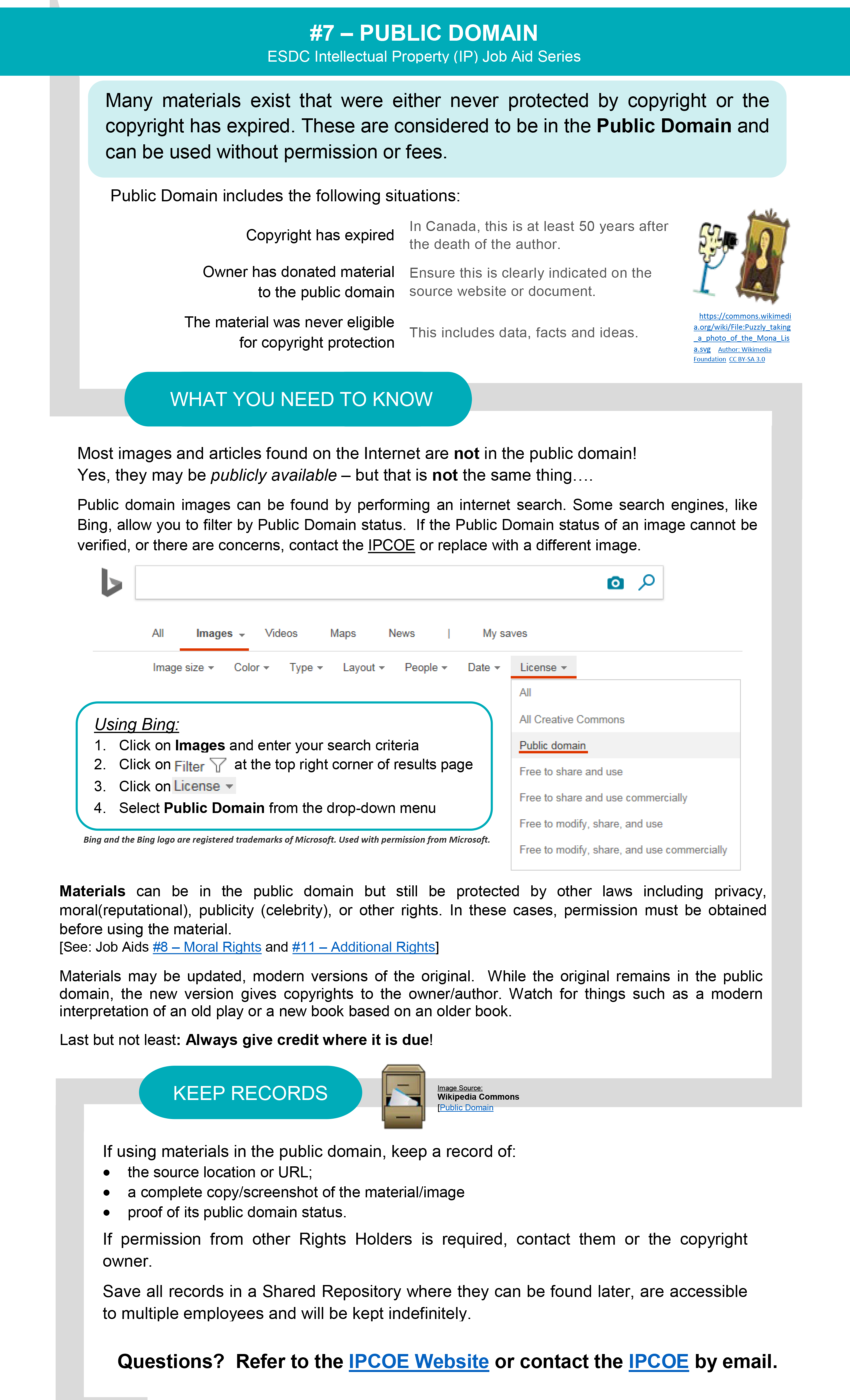Public Domain
ESDC Intellectual Property (IP) Job Aid Series
ESDC Intellectual Property (IP) Job Aid Series
Long Description
Many materials exist that were either never protected by copyright or the copyright has expired. These are considered to be in the Public Domain and can be used without permission or fees.
Public Domain includes the following situations:
- Copyright has expired
- In Canada, this is at least 50 years after the death of the author.
- Owner has donated material to the public domain
- Ensure this is clearly indicated on the source website or document.
- The material was never eligible for copyright protection
- This includes data, facts and ideas.
What You Need To Know
Most images and articles found on the Internet are not in the public domain!
Yes, they may be publicly available – but that is not the same thing...Public domain images can be found by performing an internet search. Some search engines, like Bing, allow you to filter by Public Domain status. If the Public Domain status of an image cannot be verified, or there are concerns, contact the IPCOE by email: NC-ASSETS-IP-POLICY-POLITIQUES-BIENS-PI-GD or replace with a different image.
Using Bing:
- Click on Images at the top of the page and enter your search criteria
- Click on filter at the top right corner of results page
- Click on License
- Select Public Domain from the drop-down menu
Materials can be in the public domain but still be protected by other laws including privacy, moral(reputational), publicity (celebrity), or other rights. In these cases, permission must be obtained before using the material.
[See: Job Aids – Moral Rights and – Additional Rights]Materials may be updated, modern versions of the original. While the original remains in the public domain, the new version gives copyrights to the owner/author. Watch for things such as a modern interpretation of an old play or a new book based on an older book.
Last but not least: Always give credit where it is due!
Keep Records
If using materials in the public domain, keep a record of:
- the source location or URL;
- a complete copy/screenshot of the material/image
- proof of its public domain status.
If permission from other Rights Holders is required, contact them or the copyright owner.
Save all records in a Shared Repository where they can be found later, are accessible to multiple employees and will be kept indefinitely.
Questions?
Refer to the Intellectual Property Centre of Excellence (IPCOE) or contact the IPCOE by e-mail at: NC-ASSETS-IP-POLICY-POLITIQUES-BIENS-PI-GD.
